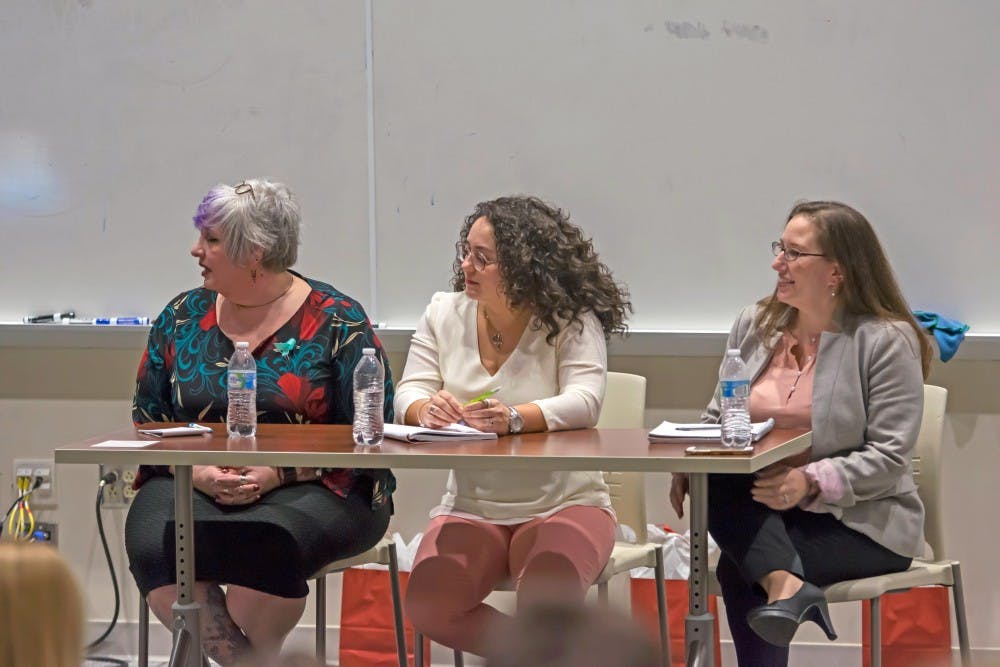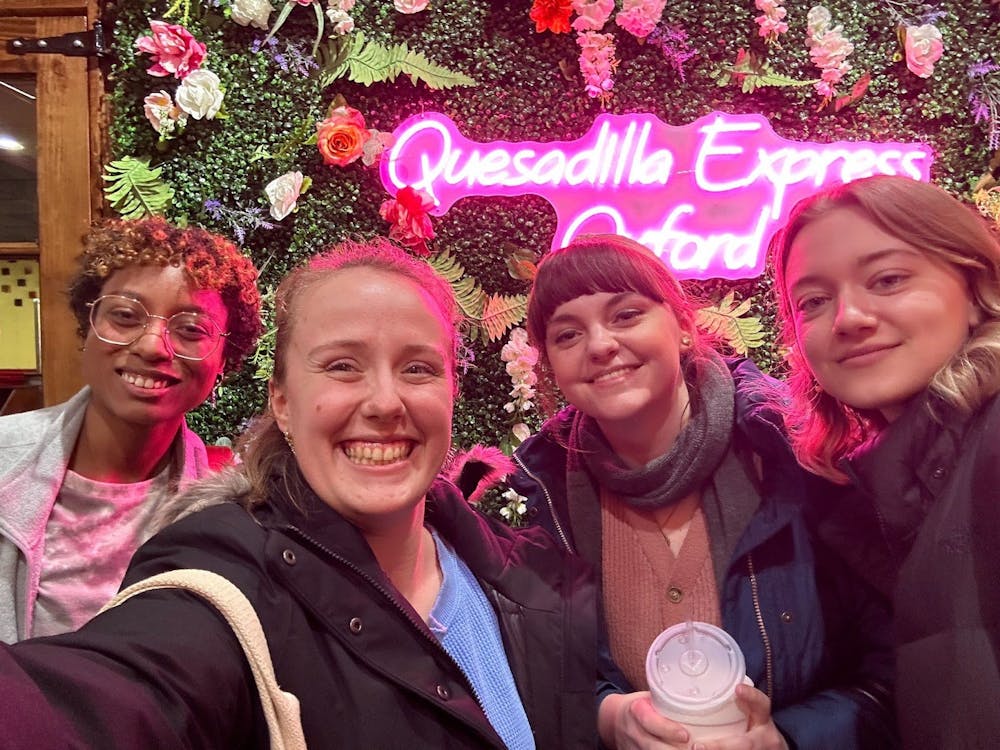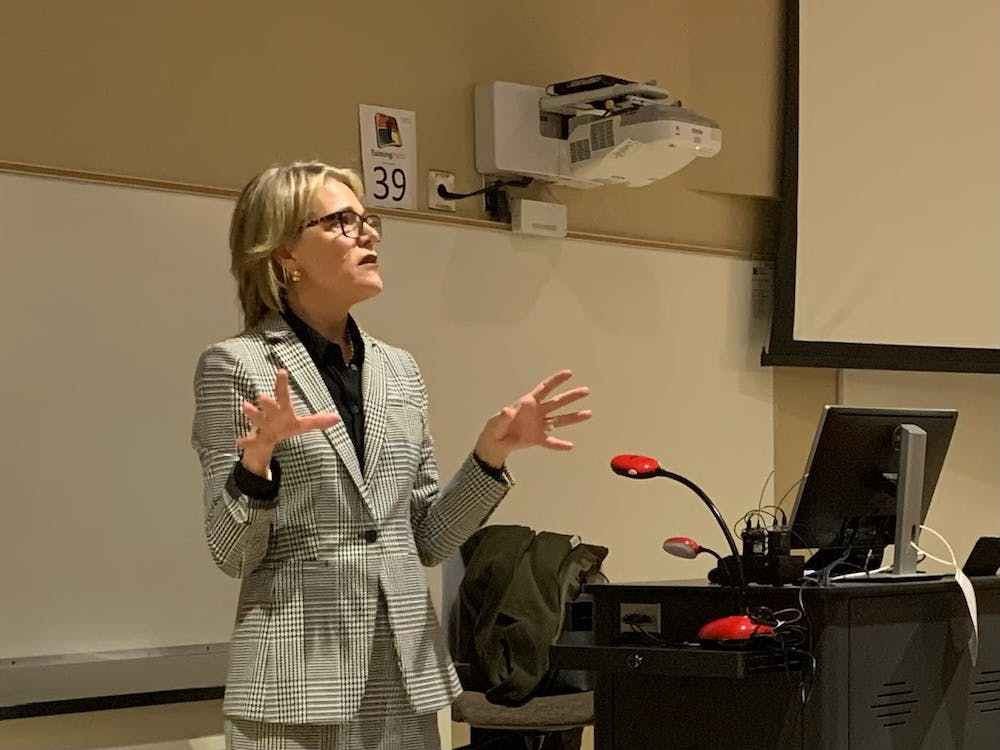On Feb. 27, the first installment of the Hidden Voices lecture series, hosted by the College of Education, Health and Society, was held in Shideler Hall. Miami public health professor Rose Marie Ward organized the series.
The Hidden Voices series highlights societal issues of sexual violence and assault, as well as relationship dynamics, with an emphasis on college students. The first lecture involved brief presentations from three experts followed by a Q&A session with the audience.
Wednesday's speaker, Miami alumna and health scientist Nichole Scaglione, gave a presentation titled "Campus Sexual Assault: Enhancing Prevention Efforts by Addressing Alcohol." She discussed the need for overlap between preventative research efforts on sexual assault and research focusing on problematic alcohol consumption.
Alcohol is the most commonly used date-rape drug and is frequently involved in instances of on-campus sexual assault, with either the perpetrator, victim or the bystander being under the influence, Scaglione said. The cause is a phenomenon known as alcohol myopia, or tunnel vision.
Tunnel vision narrows the perspectives of those who have consumed alcohol, often resulting in a loss of recognition of risk factors. Alcohol can exacerbate a perpetrator's previously formed biases and increase aggression, Scaglione said.
Twenty-seven percent of college women will experience some type of unwanted sexual contact during their time in school.
In over 50 percent of these cases, one or both of the partners are drinking, although Scaglione made sure to emphasize that alcohol use is not an excuse for assaulting someone, nor does it put the survivor at fault.
Scaglione believes there is a clear need for more research on the link between alcohol use and sexual assault, and that studying the two together may be the best way to prevent sexual assault on college campuses.
Family sciences professor Veronica Barrios presented "Dismantling the Culture of Nondisclosure of Sexual Violence." Barrios' presentation centered on reporting sexual violence.
Barrios used this story as an example of the issues with disclosing sexual assault in today's society.
Only about 20 percent of victims actually disclose their assault, Barrios said. Disclosure can often be disastrous, because no one knows what to do with the information.
Barrios said the issue is that victims often perceive their assaults as shameful. Societal "scripts" teach victims that their trauma will bring shame on their families or on themselves and that they should feel guilty for their own assaults.
Enjoy what you're reading?
Signup for our newsletter
Barrios seeks to dismantle this perception through increased education and awareness. She wants to teach victims that it is not their fault, and she wants to teach the rest of the world how to listen.
She ended her talk with a question to people who could potentially be told of another person's assault: "Do you really even wanna hear about it?"
Societal pressures and scripts were a common theme in the Hidden Voices lecture. Professor Richelle Frabotta discussed 'The Exchange of Power in a Sex-negative Culture."
Frabotta started her lecture with two points:
"Sex is fabulous," Frabotta said.
She believes the world should feel that way about sex.
But when it comes to the prevelance of sexual violent predators in society, her tone shifted.
"Cut it the fuck out. That's it. Just stop."
Frabotta also discussed the markers of healthy and unhealthy relationships, and the importance of owning your own sexuality in modern times, when "shaming is a tool of the patriarchy."
She pointed out that in the current climate, where deviation from the cultural script is considered shameful, living a sex-positive life is an act of open rebellion.
Frabotta said the sense of shame surrounding sex is a key contributor to non-disclosure and perpetration of sexual violence. She believes that more in-depth and inclusive sex education in schools will remove layers of shame surrounding sex, thus lowering the risk of victimization.
"What we need now is self-love, self-care, self-awareness and self-forgiveness," Frabotta said. "Society profits from our sexual shame."
Each of the presenters engaged with the audience, offering their own insights as well as asking for others' opinions. One audience member asked the presenters how they managed to stay positive in their line of work, especially considering the frequency of assaults.
"All I do, I ask myself, 'How can we save one more person?'" Ward said.
"You have got to hold on to the small wins," Barrios said.
If any student wishes to participate in this discussion and learning experience, they can email gradpd@miamioh.edu to be added to the discussion list. The Hidden Voices series will continue throughout the semester and will include lectures, discussions and a book club.
Miami students who want to report a sexual assault can make their report to any campus security authority, including Miami University Police (513-529-2222), Oxford Police (513-523-4321), the Office of Ethics and Student Conflict Resolution (513-529-1417), student organization advisers and athletic coaches.
Survivors can also receive confidential support from Katy Clover (513-431-1111), Miami's campus-based support specialist from the Butler County office of Women Helping Women. Clover is not a mandatory reporter.




